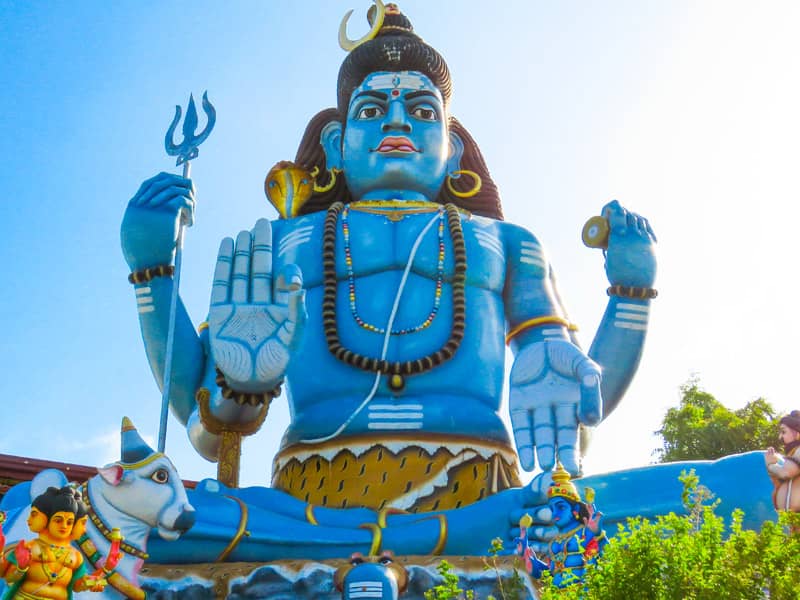 In 2000, Indian-Canadian filmmaker Deepa Mehta and her cast and crew were driven out of the Hindu holy city Varanasi. Angry mobs, apparently supported by the local political and police apparatus, tore down the sets of Mehta’s film, "Water," fearing--and perhaps rightly so--that the film would challenge the age-old traditions of Hinduism and portray the religion in a bad light.
In 2000, Indian-Canadian filmmaker Deepa Mehta and her cast and crew were driven out of the Hindu holy city Varanasi. Angry mobs, apparently supported by the local political and police apparatus, tore down the sets of Mehta’s film, "Water," fearing--and perhaps rightly so--that the film would challenge the age-old traditions of Hinduism and portray the religion in a bad light.Although the central government, led by the Hindu right-wing Bharatiya Janata Party, had approved the script of "Water," local authorities could not assure protection to the cast and crew, many of whom were foreigners. And so Mehta decided to abandon the project.
But Mehta held on to her dream of filming "Water," a tragic tale of Hindu widows living a life of austerity in an ashram by the river Ganges, and of people misusing religion to serve their needs. Four years later, Mehta took the film crew to Colombo, Sri Lanka, and recreated Varanasi, a city in north India. After a successful run in Canada, "Water" opens in the U.S. on April 28.
Mehta’s "Water"--the final chapter in her elemental trilogy (the other two films were "Fire" and "Earth") is a deeply moving and a powerful story set in the late-1930s. India is in the midst of the national freedom struggle, led by Mahatma Gandhi and his progressive ideas. Meanwhile, parallel, though smaller, individual struggles go on inside a widows’ ashram in Varanasi.
Ancient Hindu scriptures suggested that women who became widows--especially those married when they were young girls--should spend the rest of their lives with no worldly possessions, living by the river Ganges. They were not to remarry. Instead they would cut their hair short, eat one meal a day, wear the same sari all the time, sleep on the floor in dark cold rooms, and beg for money outside temples to support themselves.
"Water" begins with Chuyia--an 8-year-old married girl who accompanies her husband in a bullock-cart on the way to a big town. The husband, a much older man, is dying, and soon Chuyia (played by a wonderful young Sri Lankan girl, Sarla) will become a widow.
In Varanasi, the seemingly quiet lifestyle of widows in an ashram is shaken up with the arrival of Chuyia. She is playful, often challenging the authority of Madhumati (Manorama), the senior widow in the ashram. And she is serious about going back to her home to be with her parents, even though her father brought her to the ashram.
The ashram has an assorted mix of widows--the overweight and overbearing Madhumati, who shares pot at night with her eunuch friend Gulabi (Raghubir Yadav); Shakuntala (Seema Biswas), a sensitive middle-aged widow, who becomes a mother-figure for Chuyia; and the prized possession of the ashram: the beautiful, young, fair-skinned Kalyani (Lisa Ray), who is allowed to keep her hair long and sleep in a special room on the second floor of the ashram. Kalyani also takes to Chuyia and the two become close friends.
The ashram has a big, dark secret. At night Gulabi takes Kalyani to rich male clients who pay money for sexual liaisons with the beautiful widow. None of this is prescribed by Hindu religion, but then Kalyani’s beauty brings some extra money, which helps the upkeep of the ashram and also Madhumati’s pot-smoking habit.
By chance one day, Chuyia and Kalyani meet a young handsome lawyer, Narayan (played by the Bollywood star John Abraham). Narayan is a follower of Gandhi and opposed to the archaic Hindu practices. Narayan befriends Chuyia, but more importantly, he falls in love with Kalyani and proposes to her. Naturally, Madhumati is opposed to their romance. The old widow’s reaction to the young lovers’ affair triggers a sequence of tragic events.
But Mehta ends the film on a positive note. The climax of the film, with Gandhi visiting the town, will certainly bring tears to the eyes of the audience. It is a powerful moment, and the film ends with the widow Shakuntala gazing directly at the camera. Through her haunting eyes, Shakuntala makes a desperate plea that something needs to change.
Mehta’s cast is very strong. Biswas, who was first seen on screen in the art-house hit "Bandit Queen" (1994), is brilliant as the quiet Shakuntala, whose life changes as she watches Chuyia’s and Kalyani’s characters transform. Manorama, a classic Bollywood actress, is equally good as the strong willed Madhumati.
The film is beautiful, shot by the cinematographer Giles Nuttgens, who has worked with Mehta on "Fire," "Earth," and also on an episode of "Indiana Jones Chronicle." Canadian composer Mychael Danna--no stranger to Indian-themed films (he also worked on "Monsoon Wedding") provides the background score, while Bollywood’s top musician A.R. Rahman (Broadway and West End’s "Bombay Dreams") has composed the songs for the films. Unlike most Bollywood films, the songs in "Water" are not jarring; instead, they help in the progression of the story.
Next year, India will mark 60 years of independence from the British rule. Laws passed immediately after independence banned marriages of young girls, the mistreatment of widows, and caste discrimination. But it is also a fact that in pockets of India, especially in small, rural areas, centuries-old religious practices and traditions continue to exist. Mehta’s "Water" is a reminder that while India is set to become a nuclear and an economic power, the country still has to tackle with some of its ugly realities.

